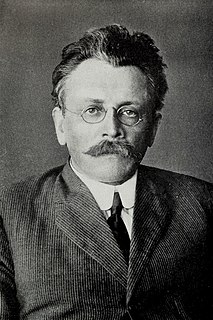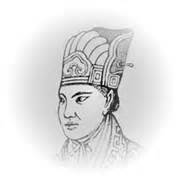A Quote by Wallace D. Wattles
THOUGHT is the only power which can produce tangible riches from the Formless Substance.
Related Quotes
There is a thinking stuff from which all things are made, and which, in its original state, permeates, and fills the inter spaces of the universe.
A thought in this substance, Produces the thing that is imaged by the thought.
Man can form things in his thought, and by impressing his thought upon formless substance, can cause the thing he thinks about to be created.
Thought is the creative power, or the impelling force which causes the creative power to act; thinking in a Certain Way will bring riches to you, but you must not rely upon thought alone, paying no attention to personal action. That is the rock upon which many otherwise scientific metaphysical thinkers meet shipwreck–the failure to connect thought with personal action.
Faith is the "eternal elixir" which gives life, power and action to the impulse of thought! Faith is the starting point of all accumulation of riches! Faith is the basis of all "miracles" and all mysteries which cannot be analyzed by the rules of science! Faith is the only known antidote for failure!
The substance of mind is the substance of heaven. A joyful thought is an auspicious star or a felicitous cloud. An angry thought is a thunderstorm or a violent rain. A kind thought is a gentle breeze or a sweet dew. A stern thought is a fierce sun or an autumn frost. Which of these can be eliminated? Just let them pass away as they arise, open and unresisting, and your mind merges with the spacious sky.
It is tempting to believe that social evils arise from the activities of evil men and that if only good men (like ourselves, naturally) wielded power, all would be well. That view requires only emotion and self-praise - easy to come by and satisfying as well. To understand why it is that 'good' men in positions of power will produce evil, while the ordinary man without power but able to engage in voluntary cooperation with his neighbors will produce good, requires analysis and thought, subordinating emotions to the rational.
So much of your present experience is based on your previous thought. Thought leads to experience, which leads to thought, which leads to experience. This can produce constant joy when the Sponsoring Thought is joyous. It can, and does, produce continual hell when the Sponsoring Thought is hellatious.
Of the eternal corporeal substance (which is not producible ex nihilo, nor reducible ad nihilum, but rarefiable, condensable, formable, arrangeable, and "fashionable") the composition is dissolved, the complexion is changed, the figure is modified, the being is altered, the fortune is varied, only the elements remaining what they are in substance, that same principle persevering which was always the one material principle, which is the true substance of things, eternal, ingenerable and incorruptible.
The impersonal aspect [of God] (Nirakara, Nirguna) is called Brahman, or 'unknowable' by Herbert Spencer, 'will' by Schopenhauer, Absolute Noumenon by some 'substance' by Spinoza. The personal aspect (Sakara) of that Being is termed 'Ishvara' or Allah, Hari, Jehova, Father in Heaven, Buddha, Siva, etc. Just as vapour or steam is formless, so also God is formless in His unmanifested or transcendental state.































